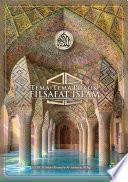
E-Banking Security
How Secure is Electronic Banking?
The increase in computer crime has led to skepticism about the move made by the banks to introduce e-banking. Some view this as a noble move which has made the banking system more efficient, reliable and secure, while others view it as a risky and insecure way of banking. This book discusses the various computer threats and the security mechanisms put in place to ensure that e-banking is secure. The areas that still need some improvements with respect to elements of information security are highlighted. The knowledge gained from this book is aimed at helping the banks and its customers in decision making; other organizations since information security does not only affect banks. Any organization that has information and information systems is subject to attack although the risk will vary with the nature of industry. Further, this book will benefit scholars in the field of information systems, computer security and the business people who value the quality of services their organizations offer to their clients.
- ISBN 13 : 9783659402050
- ISBN 10 : 3659402052
- Judul : E-Banking Security
- Sub Judul : How Secure is Electronic Banking?
- Pengarang : Khanyisa Malufu,
- Penerbit : LAP Lambert Academic Publishing
- Bahasa : en
- Tahun : 2013
- Halaman : 112
- Google Book : http://books.google.co.id/books?id=E95DnQEACAAJ&dq=intitle:E-Banking&hl=&source=gbs_api
-
Ketersediaan :
Further, this book will benefit scholars in the field of information systems, computer security and the business people who value the quality of services their organizations offer to their clients.









